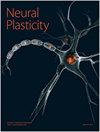The Application of tDCS to Treat Pain and Psychocognitive Symptoms in Cancer Patients: A Scoping Review
IF 3.7
4区 医学
Q2 Medicine
引用次数: 0
Abstract
Background. The use of transcranial direct current stimulation (tDCS) to modulate pain, psychological aspects, and cognitive functions has increased in recent years. The present scoping review aims to investigate the use of tDCS in cancer patients and its significant impact on psychocognitive and pain related symptoms. Methods. From the earliest available date to June 2023, a comprehensive search was conducted in three electronic scientific databases—PubMed, Scopus, and Embase—and other supplementary sources. Ten relevant studies were identified and included, comprising single case studies, randomized controlled trials, pilot studies, and one retrospective study. PRISMA guidelines for scoping reviews were followed. Results. These studies investigated the use of tDCS to improve pain and psychocognitive aspects in patients with various types of cancer, including breast, oral, bladder, lung, pancreatic, head and neck cancer, hepatocellular carcinoma, and meningioma. Overall, the results suggest that tDCS has shown efficacy in relieving pain, reducing anxiety and depression, and improving cognitive function in cancer patients. Conclusion. Due to the limited number and high heterogeneity of the existing literature in this field, more investigation and the establishment of standardized protocols would be required to obtain more conclusive evidence.应用 tDCS 治疗癌症患者的疼痛和心理认知症状:范围综述
背景。近年来,使用经颅直流电刺激(tDCS)来调节疼痛、心理和认知功能的情况越来越多。本综述旨在研究 tDCS 在癌症患者中的应用及其对心理认知和疼痛相关症状的重大影响。研究方法在三个电子科学数据库--PubMed、Scopus 和 Embase 以及其他补充资料来源中进行了全面检索,检索时间从最早可用日期到 2023 年 6 月。确定并纳入了 10 项相关研究,包括单个病例研究、随机对照试验、试点研究和一项回顾性研究。范围界定审查遵循 PRISMA 指南。研究结果这些研究调查了使用 tDCS 改善乳腺癌、口腔癌、膀胱癌、肺癌、胰腺癌、头颈癌、肝细胞癌和脑膜瘤等各类癌症患者疼痛和心理认知方面的情况。总之,研究结果表明,tDCS 在缓解癌症患者疼痛、减轻焦虑和抑郁以及改善认知功能方面具有疗效。结论由于该领域现有文献数量有限且异质性较高,因此需要进行更多调查并制定标准化方案,以获得更多确凿证据。
本文章由计算机程序翻译,如有差异,请以英文原文为准。
求助全文
约1分钟内获得全文
求助全文
来源期刊

Neural Plasticity
Neuroscience-Neurology
CiteScore
5.70
自引率
0.00%
发文量
0
审稿时长
1 months
期刊介绍:
Neural Plasticity is an international, interdisciplinary journal dedicated to the publication of articles related to all aspects of neural plasticity, with special emphasis on its functional significance as reflected in behavior and in psychopathology. Neural Plasticity publishes research and review articles from the entire range of relevant disciplines, including basic neuroscience, behavioral neuroscience, cognitive neuroscience, biological psychology, and biological psychiatry.
 求助内容:
求助内容: 应助结果提醒方式:
应助结果提醒方式:


